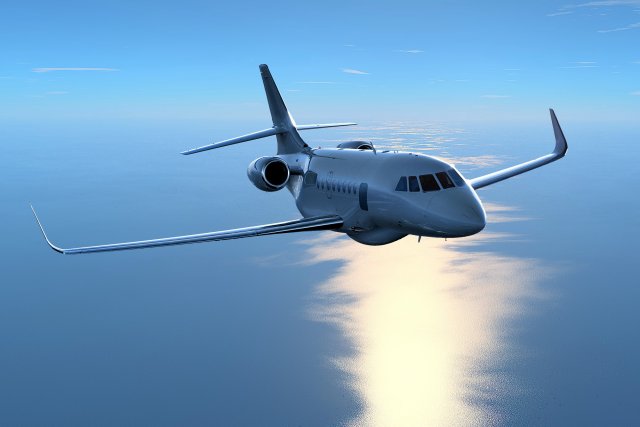| a | |||
|
|
|||
|
World Defense & Security News - South Korea
|
|||
|
|
|||
|
South Korea about to conduct flight test of new ISR aircraft in United States
|
|||
|
South Korea plans to conduct a flight test of two new reconnaissance planes in the United States this week, which can help the country better detect signs of North Korean missile launches and other threats, country's officials said Monday April 4.
|
|||
|
|
|||
 South Korea's new ISR aircraft are based on Dassault's Falcon 2000 business jet special missions variant South Korea's new ISR aircraft are based on Dassault's Falcon 2000 business jet special missions variant(Credit: Dassault Aviation) |
|||
|
|
|||
|
The planes, part of the enhanced Baekdu program, will undergo their first flight tests in an airfield in Texas later this week, according to officials at the Defense Acquisition Program Administration.
The test is intended to examine the operability of the aircraft with internal mission equipment in development by local manufacturers including LIG Nex 1. The U.S. partner of the program is providing the technology to integrate them into the aircraft's central mission computer. In a major upgrade program, the military is seeking to adopt and deploy the two updated spy planes by 2017. The new functions of the planes include the detection of electronic signals emitted by machines before the North fires missiles. They could also track down heat sources in the event of a missile launch. If the plan moves ahead of schedule and there are no problems with performance, they can be deployed as early as this year, according to military sources. The platform for the new spy planes is the France-based Dassault Aviation's Falcon 2000 jet, which is bigger in size compared to the military's fleet of four spy planes built on the Hawker 800 platform. These Hawker jets employ equipment that was developed some 20 years ago, making them less fit to deal with the latest conditions. North Korea has been making strides in its nuclear and missile capabilities in recent years, having conducted its latest long-range rocket launch in early February. Pyongyang claims the rocket placed a satellite into orbit, but most outsiders think the launch was a cover to test long-range missiles that, if completed, could hit the mainland U.S. The communist country's progress in the development of submarine-launched ballistic missiles is also raising concerns since such a weapons system can allow the North to fire off a ballistic missile from an unexpected location under the sea. This kind of capability will make it that much harder to detect and intercept such missiles. |
|||
















